Google is quietly adding its Gemini AI tool everywhere without asking you, replacing Google Assistant by default even on devices where users never explicitly enabled it. In many cases, Gemini now appears as the default assistant out of the box, and it’s becoming harder to fully turn off or remove.
This deep integration means that even if you don’t open the Gemini app, it may still be active in the background, connected to your apps, system features, and sensitive information — and this has major implications for your privacy.
Gemini will become the default AI assistant across all Android devices — like it or not — by the end of 2025(new window). Until then, you still have options. For now, you can limit its access, turn off activity tracking, disconnect it from your apps, and even uninstall it in some cases.
So what exactly can Gemini access, and what does that mean for your privacy? Here’s what you need to know, and how to turn it off.
- How to turn off Gemini AI on Android
- How to turn off Gemini on Gmail
- What Gemini can access on your Android device
- Why Gemini is dangerous for your data
- Your data trains the Gemini AI, even after opting out
- Gemini Deep Research can read your emails, files, and chats
- Other people may see your sensitive information
- Your data may be shared beyond Google
- The July 2025 update keeps Gemini connected without your consent
- Its security flaws could lead to real-world safety risks
- Can you fully disable Gemini on Android?
- Choose privacy over AI surveillance
How to turn off Gemini AI on Android
- Open the Gemini app on your Android.
- Tap your profile icon in the top-right corner.
- Go to Gemini Apps Activity*.
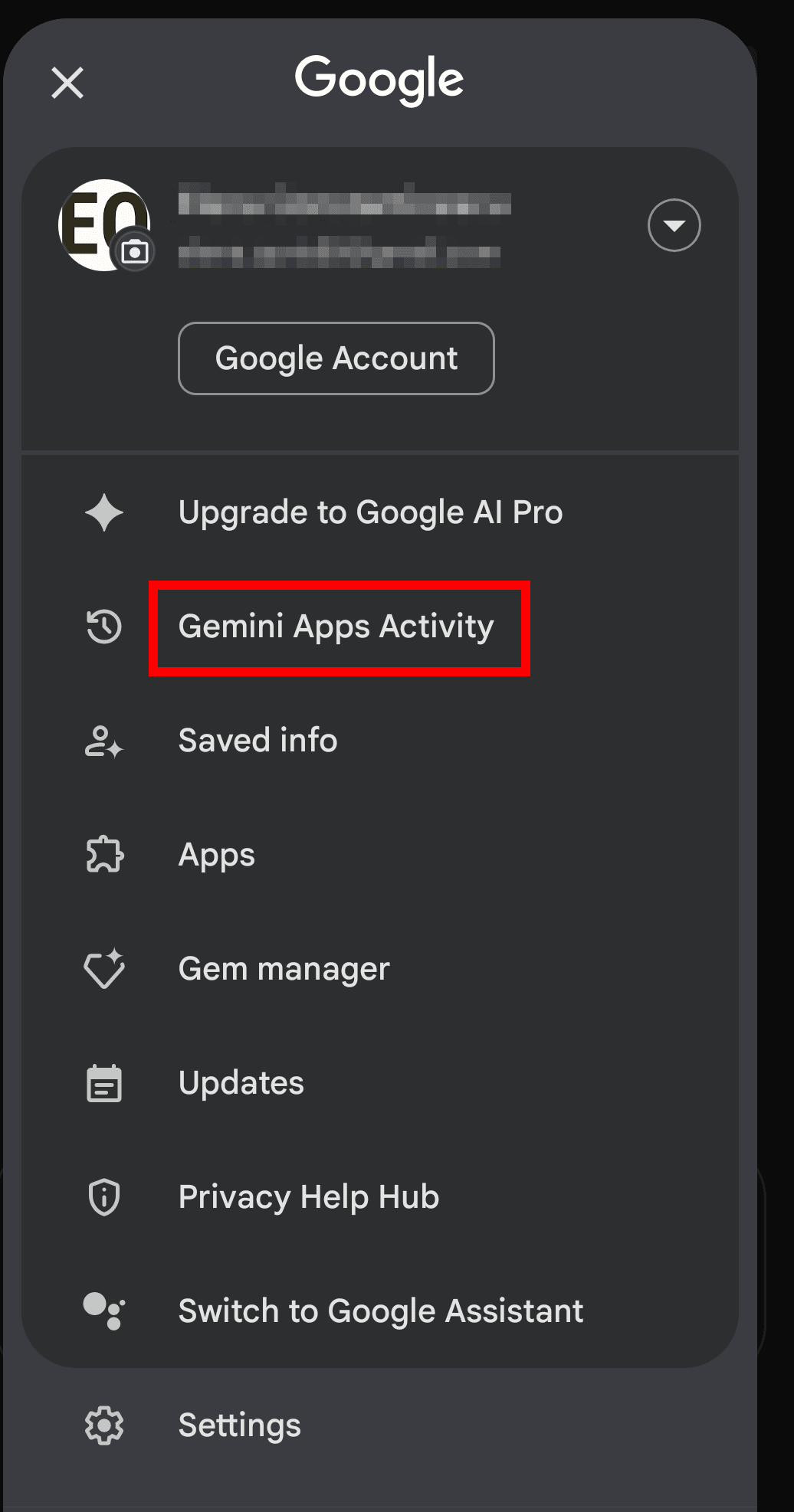
- Tap Turn off → Turn off and delete activity, and follow the prompts.
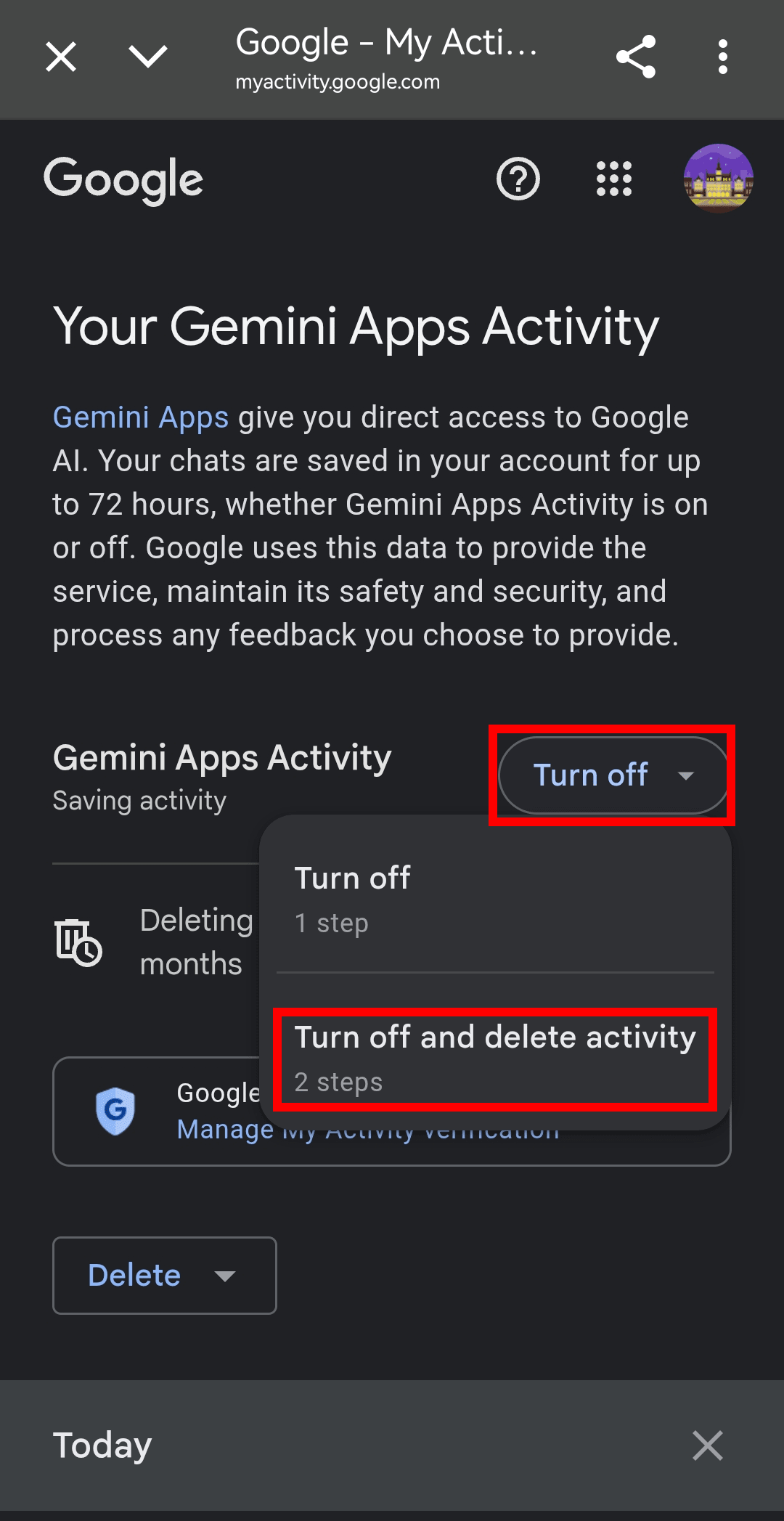
- Select your profile icon again and go to Apps**.
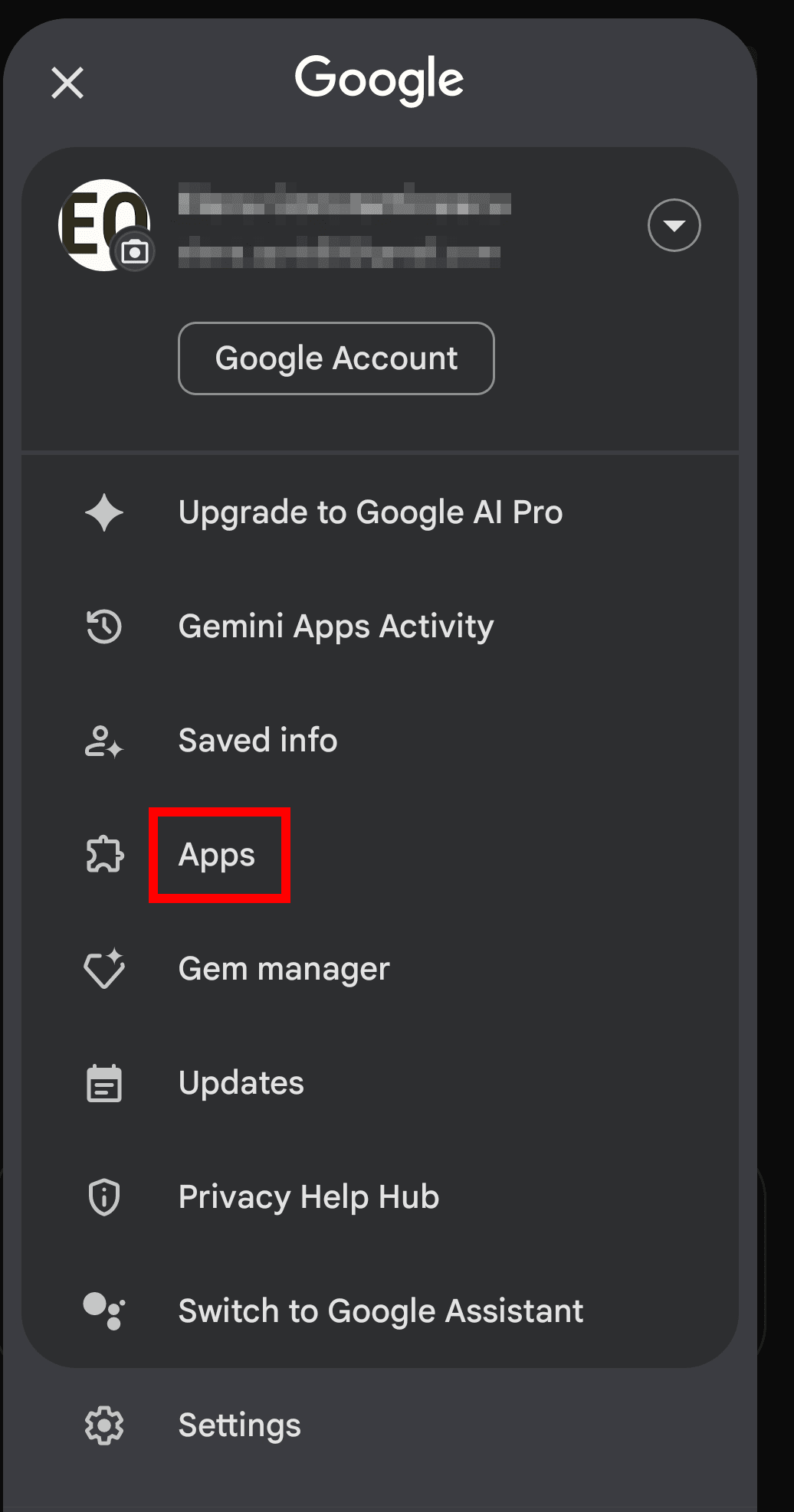
- Tap the toggle switch to prevent Gemini from interacting with Google apps and third-party services.
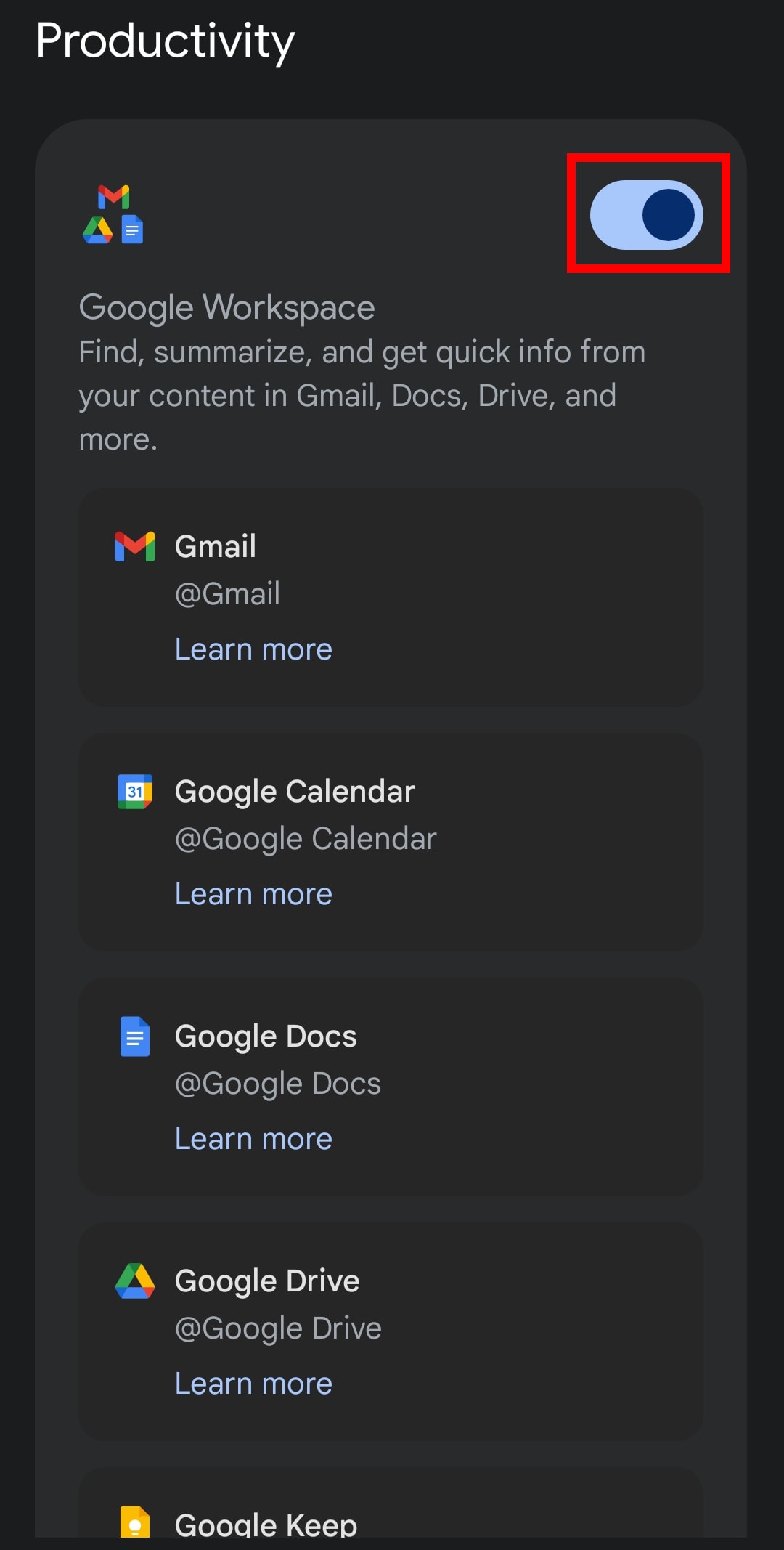
- Avoid using Gemini Deep Research with Gmail, Drive, or Chat (these sources are turned off by default). If you have already selected them when enabling Deep Research, open Sources* and clear their checkboxes.

*Gemini Apps Activity is a setting that controls whether your interactions with Gemini are saved to your Google account and used to improve Google’s AI systems. When it’s on, your conversations may be reviewed by humans, stored for up to 3 years, and used for AI training. When it’s off, your data remains stored for up to 72 hours so Google can process your requests and feedback. However, even with this setting turned off, Google may still process your chats to create anonymized data used to improve its services.
**Apps are the Google apps and third-party services that Gemini can access to perform tasks on your behalf — like reading your Gmail, checking your Google Calendar schedule, retrieving documents from Google Drive, playing music via Spotify, or sending messages on your behalf via WhatsApp. When Gemini is connected to these apps, it can access your personal content to fulfill prompts, and that data may be processed by Google or shared with the third-party app according to their own privacy policies.
***The Sources option is currently available on desktop and will be coming to Android soon.
How to turn off Gemini in Gmail
- In your Gmail app, go to Settings.
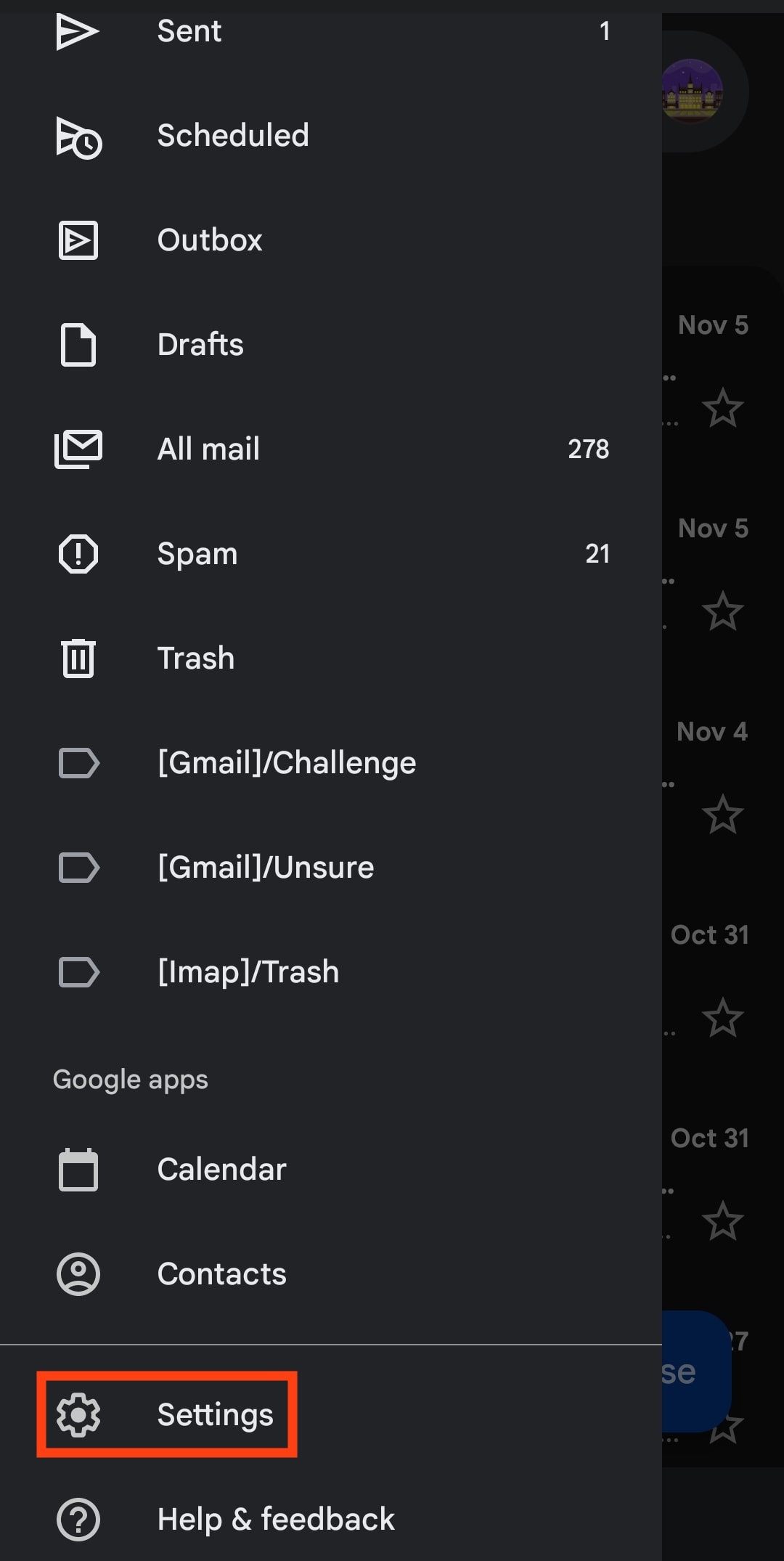
- Select your Gmail address.
- Clear the Smart features checkbox.
- Go to Google Workspace smart features.

- Clear the checkboxes for:
- Smart features in Google Workspace
- Smart features in other Google products

If you have more Gmail accounts, repeat these steps for each one. The Workspace settings, however, apply globally across your Google Workspace (including Google Drive), so you only need to adjust those once.
If you want to be completely sure Google doesn’t re-enable or introduce new AI features that process your data, consider switching to Proton Mail, our secure email. Moving all your emails, calendars, and contacts is simple with Easy Switch.
What Gemini can access on your Android device
While Gemini’s current capabilities are still somewhat limited, it already has access to sensitive data across Google and third-party services. This includes:
- Gmail to retrieve, summarize, or answer questions about email content. This could include private messages about your finances, job applications, or personal relationships.
- Google Calendar to create, edit, or delete events, and even pull data from images to generate new ones. For example, it could learn about your scheduled therapy sessions, medical visits, or business meetings.
- Google Docs and Google Drive to fetch documents based on descriptions, titles, or author/sender information, and summarize or extract key content, such as your medical reports, ID scans, or work documents.
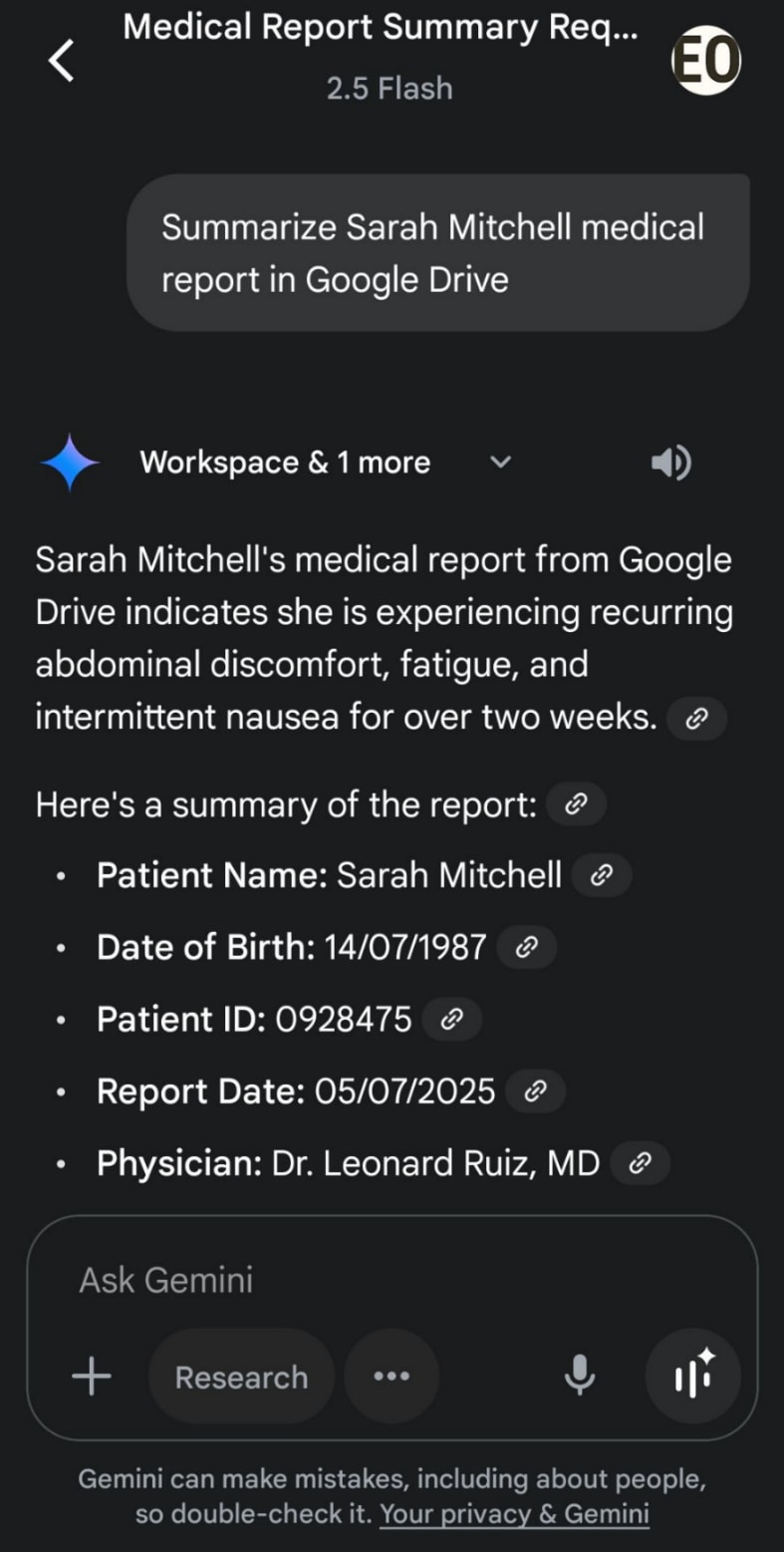
- Google Maps to use your saved home or work address, and give directions — which can paint a clear picture of where you live, work, and spend time.
- Google Keep and Tasks to create notes and lists, or summarize them — such as your personal reminders, grocery lists with dietary details, or to-do lists with daily routines.
- Messages, Phone, or WhatsApp to send messages or make calls.
Why Gemini is dangerous for your data
Gemini promises to simplify how you interact with your Android — fetching emails, summarizing meetings, pulling up files. But behind that helpful facade is an unprecedented level of centralized data collection, powered by a company known for privacy washing, (new window)misleadin(new window)g users(new window) about how their data is used, and that was hit with $2.9 billion in fines in 2024 alone, mostly for privacy violations and antitrust breaches.
Here’s why you should turn off Gemini on your Android:
Your data trains the Gemini AI, even after opting out
According to the Gemini privacy policy(new window), everything you share — chats, screenshots, voice recordings, files, even browser content — is used to provide, improve, develop, and personalize Google products and services, including machine-learning technologies. Simply put, Gemini uses your data to train its models.
Even if you turn off Gemini Apps Activity to prevent Google from using your conversations for AI training, the company may still process them to “create anonymized data to improve Google services.”
That wording is broad enough to include everything from refining AI models to developing new products you haven’t explicitly consented to. So there’s no real way to stop Google from using your data to improve its ecosystem.
Gemini Deep Research can read your emails, files, and chats
Gemini Deep Research is a feature that lets Google’s AI dig through your Gmail, Google Drive, and Google Chat (for now) to build research reports. If you enable these sources, Deep Research can read, summarize, and cross-reference your private emails, files, and conversations, creating a detailed profile of your life.
Because all of that content becomes part of your AI prompts, it’s fair game for Google’s data processing and AI training. This means any sensitive or personal material, from medical records and NDAs to family messages, could be used by Google to improve its services.
Other people may see your sensitive information
Even more concerning, human reviewers may process your conversations. While Google claims these chats are disconnected from your Google account before review, that doesn’t mean much when a simple prompt like “Show me the email I sent yesterday” might return personal data like your name and phone number.
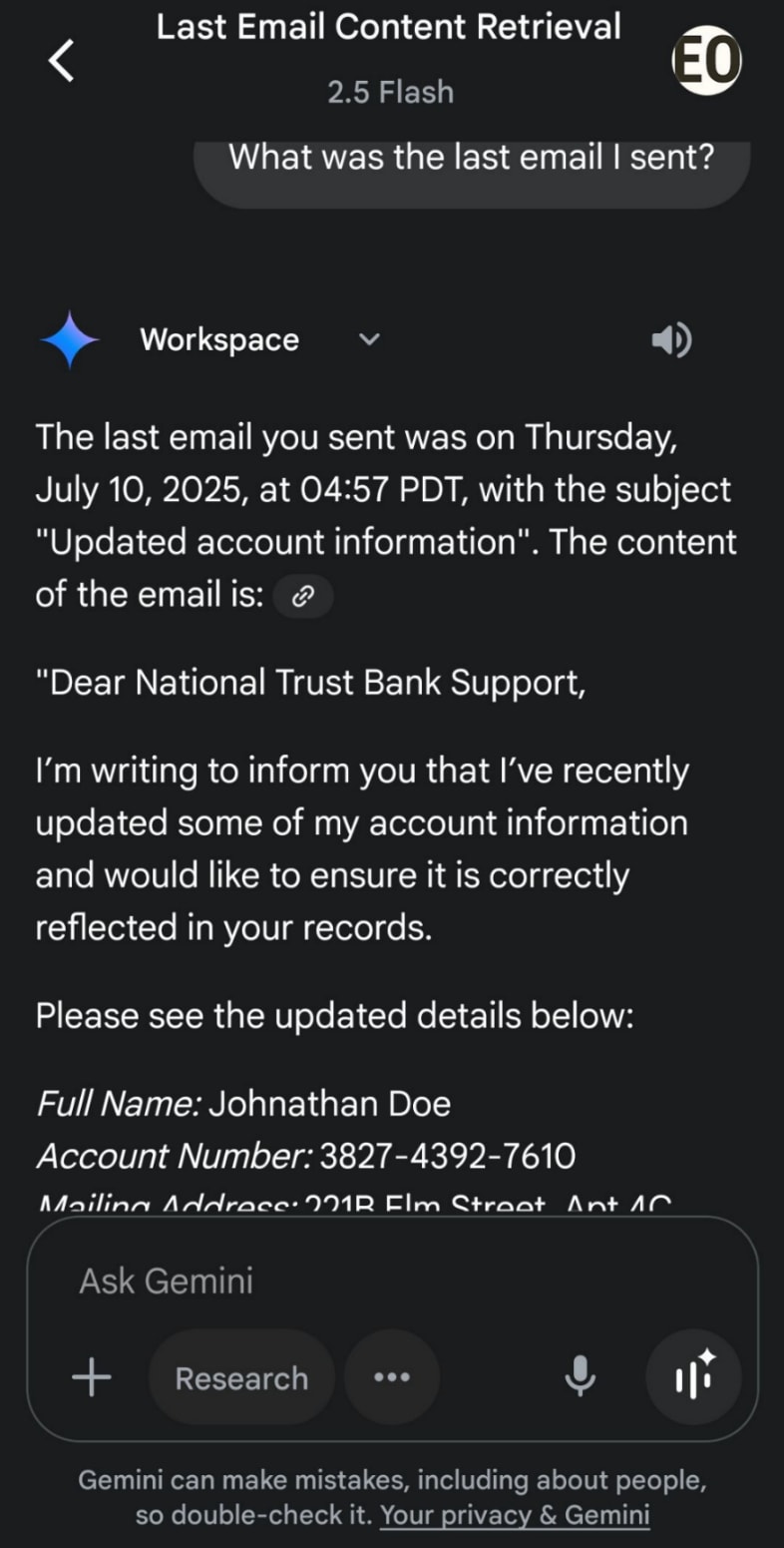
Your data may be shared beyond Google
Gemini may also share your data with third-party services. When Gemini interacts with other services, your data gets passed along and processed under their privacy policies, not just Google’s. Right now, Gemini mostly connects with Google services, but integrations with apps like WhatsApp and Spotify are already showing up. Once your data leaves Google, you cannot control where it goes or how long it’s kept.
The July 2025 update keeps Gemini connected without your consent
Before July, turning off Gemini Apps Activity automatically disabled all connected apps, so you couldn’t use Gemini to interact with other services unless you allowed data collection for AI training and human review. But Google’s July 7 update changed this behavior and now keeps Gemini connected to certain services — such as Phone, Messages, WhatsApp, and Utilities — even if activity tracking is off.
While this might sound like a privacy-conscious change — letting you use Gemini without contributing to AI training — it still raises serious concerns. Google has effectively preserved full functionality and ongoing access to your data, even after you’ve opted out.
Its security flaws could lead to real-world safety risks
Security researchers have shown how Gemini could be hijacked(new window) through indirect prompt injections — such as poisoned calendar invites — to perform real-world actions like opening smart windows or turning off lights in a connected home, triggered unknowingly by the homeowner. Gemini’s integration with the Google ecosystem (including Google Calendar) and access to connected smart devices made it all possible.
Can you fully disable Gemini on Android?
No, and that’s by design. While you can turn off activity tracking, revoke permissions, and even uninstall the Gemini app on some devices, Google is actively replacing its Assistant app with Gemini. By the end of 2025, Gemini will be the default assistant on all Android phones. This leaves you with three options:
- Minimize exposure by turning off Gemini Apps Activity and revoking app permissions.
- Limit what Google knows about you by using its services less or fully de-Googling your digital life.
- Switch to an open-source operating system like GrapheneOS(new window), an Android fork that runs without surveillance from Big Tech.
And if you’re using a Google Workspace account, you should know that you can’t fully turn off Gemini in Gmail and other apps.
Choose privacy over AI surveillance
Google says that it doesn’t use Gemini chats to target ads, and that your photos aren’t used to train AI “at this time.” However, the phrasing leaves ample room for change. As Gemini gets smarter, it will likely need deeper integration, broader access, and more data. And Google is already moving in that direction by embedding Gemini more deeply into the Android operating system, whether you want it or not.
Until now, Google’s privacy policy didn’t make it clear whether sensitive content like your emails or documents could be used for AI training. Now, it confirms that if you ask Gemini to access this kind of personal data — like reading your emails or summarizing a doc — that information may be used to improve its models.
Your inbox and your files shouldn’t be training inputs for someone else’s algorithms. With Proton, your emails and files belong to you.
Our encrypted email, private calendar, secure cloud storage, and online document editor are built around a completely different model — one where your data is never used for AI training, never shown to human reviewers, and never used to target you with ads. You pay for a service, and that’s exactly what you get: secure, private tools that protect your information rather than exploiting it.






